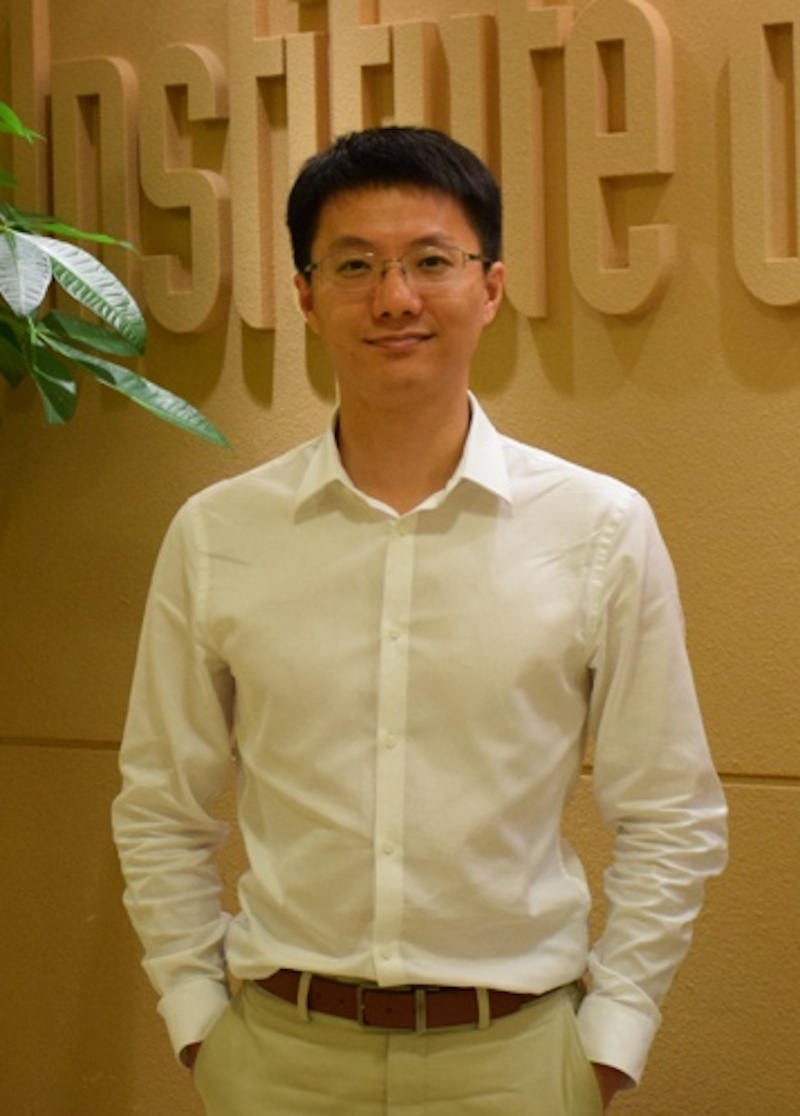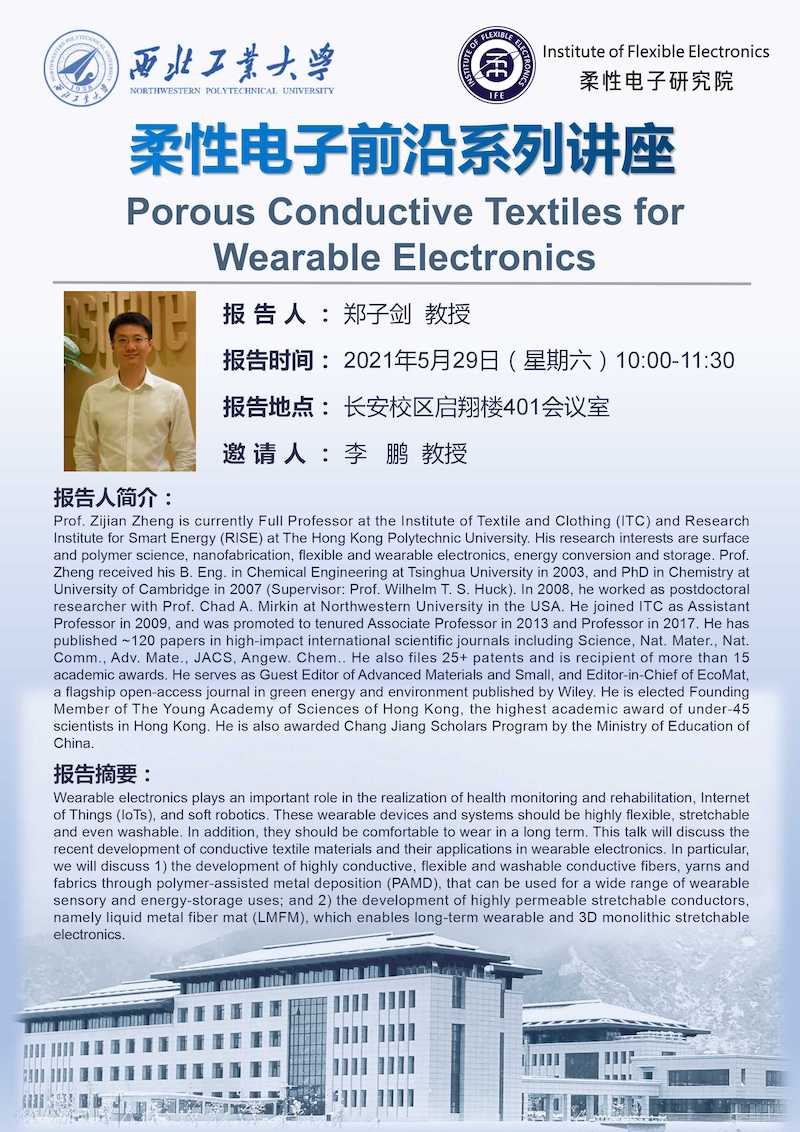报告题目:Porous Conductive Textiles for Wearable Electronics
报告人:郑子剑教授
报告时间:2021年5月29日(星期六)10:00-11:30
报告地点:长安校区启翔楼401会议室
邀请人:李鹏教授
报告人简介:
Prof. Zijian Zheng is currently Full Professor at the Institute of Textile and Clothing (ITC) and Research Institute for Smart Energy (RISE) at The Hong Kong Polytechnic University. His research interests are surface and polymer science, nanofabrication, flexible and wearable electronics, energy conversion and storage. Prof. Zheng received his B. Eng. in Chemical Engineering at Tsinghua University in 2003, and PhD in Chemistry at University of Cambridge in 2007 (Supervisor: Prof. Wilhelm T. S. Huck). In 2008, he worked as postdoctoral researcher with Prof. Chad A. Mirkin at Northwestern University in the USA. He joined ITC as Assistant Professor in 2009, and was promoted to tenured Associate Professor in 2013 and Professor in 2017. He has published ~120 papers in high-impact international scientific journals including Science, Nat. Mater., Nat. Comm., Adv. Mate., JACS, Angew. Chem.. He also files 25+ patents and is recipient of more than 15 academic awards. He serves as Guest Editor of Advanced Materials and Small, and Editor-in-Chief of EcoMat, a flagship open-access journal in green energy and environment published by Wiley. He is elected Founding Member of The Young Academy of Sciences of Hong Kong, the highest academic award of under-45 scientists in Hong Kong. He is also awarded Chang Jiang Scholars Program by the Ministry of Education of China.

报告摘要:
Wearable electronics plays an important role in the realization of health monitoring and rehabilitation, Internet of Things (IoTs), and soft robotics. These wearable devices and systems should be highly flexible, stretchable and even washable. In addition, they should be comfortable to wear in a long term. This talk will discuss the recent development of conductive textile materials and their applications in wearable electronics. In particular, we will discuss 1) the development of highly conductive, flexible and washable conductive fibers, yarns and fabrics through polymer-assisted metal deposition (PAMD), that can be used for a wide range of wearable sensory and energy-storage uses; and 2) the development of highly permeable stretchable conductors, namely liquid metal fiber mat (LMFM), which enables long-term wearable and 3D monolithic stretchable electronics.
